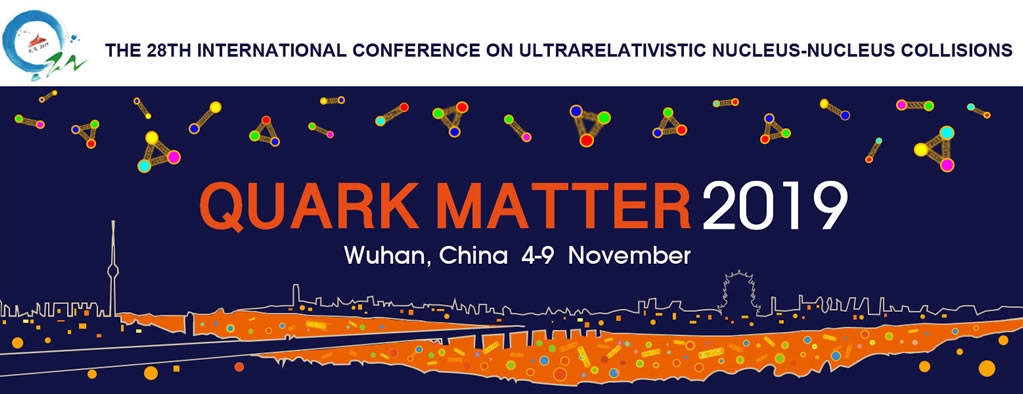Speaker
Description
One of the most important objectives of Beam energy scan (BES) program at the Relativistic Heavy ion collider (RHIC) is to search for the critical point in the QCD matter via performing nucleus-nucleus collisions with wide collision energies (7.7 - 200 GeV). At such energies, the produced quark-gluon plasma (QGP) matter has sizable net baryon density at the central rapidity region due to baryon stopping power. Therefore, the dissipation of net-baryon current plays an important role in the dynamical evolution of the hot and dense QCD matter produced in RHIC-BES heavy-ion collisions.
The (3+1)-dimensional viscous hydrodynamic has been very successful in describing the collective behavior of the QGP fireball at zero chemical potential. In order to study the properties of QGP and the dissipative phenomena of net baryon current at a non-zero baryon environment of the BES energies, we extend the CLVisc [1, 2] hydrodynamic model to include the equation of net baryon charge conservation and Israel-Stewart-like equations about dissipative baryon current with NEOSB [3] equation of state. Assuming instantaneous smooth energy density and net baryon density distribution at the initial proper time, we study the impact of the net-baryon dissipation on particle yields, pT spectra and anisotropic flows in the final state of BES heavy-ion collisions.
[1] Pang, Long-Gang et al. Phys.Rev. C97 (2018) no.6, 064918 arXiv:1802.04449 [nucl-th]
[2] Pang, Longgang et al. Phys.Rev. C86 (2012) 024911, arXiv:1205.5019 [nucl-th].
[3] Monnai, Akihiko et al. arXiv:1902.05095 [nucl-th]
